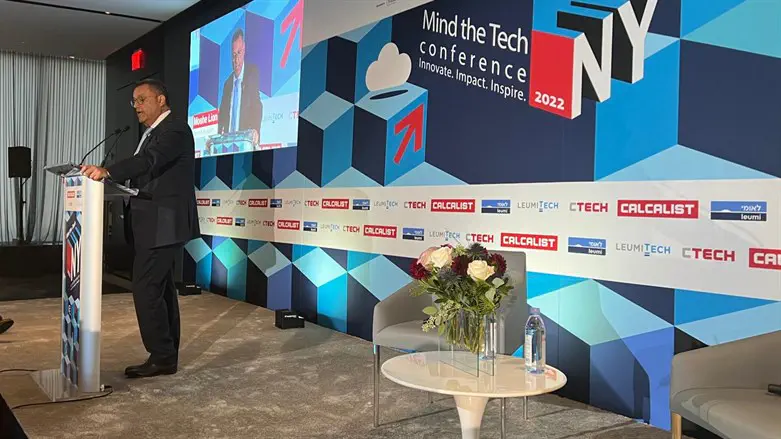
Jerusalem Mayor Moshe Lion spoke at the Calcalist Mind the Tech Conference in New York City.
The conference brought together experts and leaders to examine the ways in which tech and innovation manifest in an array of fields from marketing to art.
“I know many people come to Jerusalem to look at the archeology and the history, to imagine what life was like in the city thousands of years ago. And when we dig down in Jerusalem, we find the coins, tools and houses from the days of the Kingdoms of Israel, and the days of the Temple,” Lion said.
“But, I ask myself this question: what will the archaeologists of the future find when they dig in Jerusalem? What will historians of the future know about the Jerusalem of today? And my answer is: They might find some coins, but they will also find microchips and computers.”
Lion called today’s Jerusalem as a “high-tech hub,” noting it has over 650 tech firms that employ over 22,000 people.
He also praised Jerusalem’s light rail system – “the first city in Israel with a working and clean mass transit network” – and the city’s multi-billion shekel investment in public parks and gardens.
“The restaurants and the city's sports and entertainment facilities are among the best in Israel. And the Mahane Yehuda Market, which was once, a dark and not so pleasant place, today is a magnet for Jerusalemites, as well as Israelis from across the country, and for visitors and tourists, who come night after night to enjoy the unique flavors of Jerusalem.”
“In recent years, Jerusalem, has seen a revolution in construction, in infrastructure, in innovation,” he added.
This has included investments in new office space, homes and schools.
“We continue to work with international companies, and local startups, to promote the Jerusalem innovation ecosystem,” Lion said. “We are building one million and six hundred square meters of new high-tech work and office space, across the city – in the east and west, over the next three years.”
He remarked that Jerusalem universities have 50,000 students studying technology, life sciences, medicine and design.
“They are the oxygen for the growing innovation companies, who are expanding all the time,” he said. “But most important of all, we are doing this for all the residents of the city. East and West. Jews and Arabs. Religious and secular. Jerusalem is a united city, and so we must treat it as a united city. In the Jerusalem of 2022, nobody can be left behind. We succeed together.”
